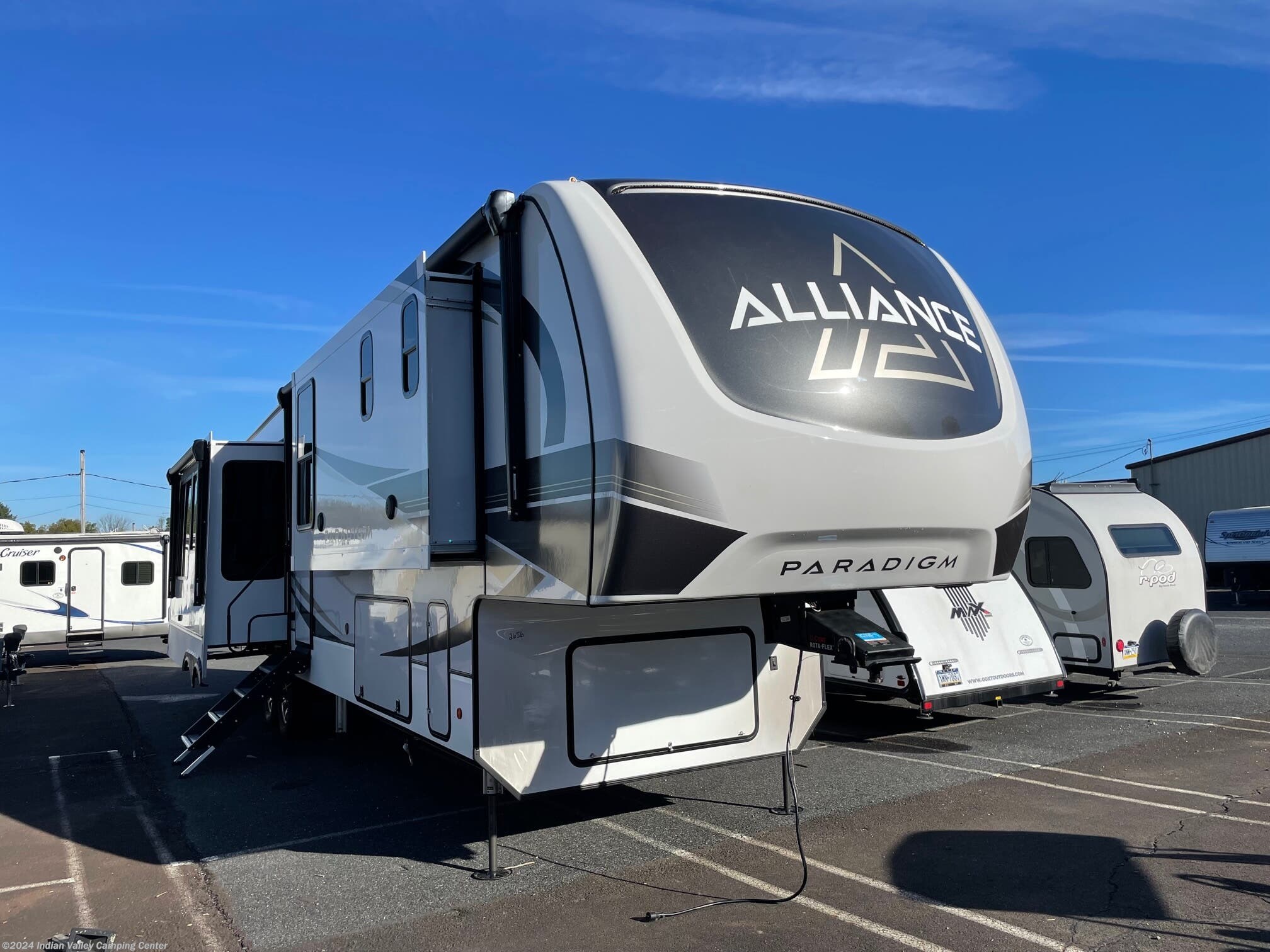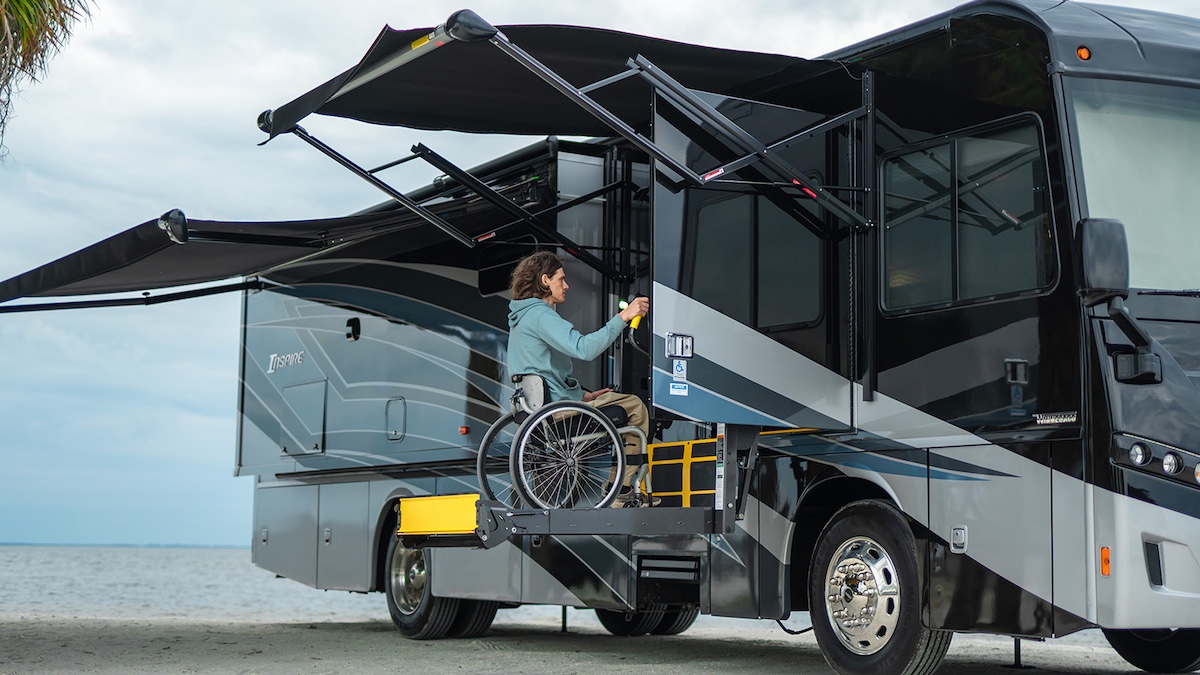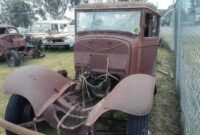RV Haul And Tow Trucks For Sale: Your Comprehensive Guide to Powering Your Adventures and Business pickup.truckstrend.com
The open road calls to millions, offering the promise of adventure, freedom, and the comfort of home on wheels. For RV enthusiasts, this dream hinges on one crucial component: a reliable, capable vehicle to move their often-sizable recreational home. Similarly, for businesses operating in the automotive or logistics sectors, the ability to safely and efficiently transport or recover vehicles, including large RVs, is paramount. This is where the specialized world of RV haul and tow trucks for sale comes comes into play – a diverse market offering everything from heavy-duty pickups designed for personal RVers to robust commercial wreckers built for professional towing operations.
This comprehensive guide will navigate the intricacies of this market, helping you understand the types of trucks available, what to consider before purchasing, where to find them, and how to make an informed decision that ensures safety, efficiency, and peace of mind on every journey or job.
RV Haul And Tow Trucks For Sale: Your Comprehensive Guide to Powering Your Adventures and Business
Understanding the Beasts: What Are RV Haul and Tow Trucks?
At its core, an RV haul or tow truck is a vehicle engineered for significant pulling power and stability. While the terms are often used interchangeably, there’s a subtle distinction in their primary function:
- RV Haul Trucks (or Tow Vehicles): These are primarily designed to transport recreational vehicles, whether a travel trailer, fifth-wheel, or even a large toy hauler. They are typically heavy-duty pickup trucks (3/4-ton, 1-ton, or dually) or even medium-duty trucks, configured to provide the necessary Gross Combined Weight Rating (GCWR), payload capacity, and towing capacity to safely move an RV from point A to point B. For personal RV owners, this is their "daily driver" or dedicated RV mover.
- Tow Trucks (or Wreckers): These vehicles are specifically equipped for recovering disabled, impounded, or crashed vehicles. While some heavy-duty wreckers can certainly move an RV, their primary function involves specialized lifting and pulling mechanisms (boom, under-reach, wheel-lift) for recovery rather than long-distance hauling. Businesses like roadside assistance, impound lots, or auto repair shops typically own these.
Both categories demand robust frames, powerful engines, strong transmissions, and advanced braking systems to handle immense weights. Understanding your specific needs – personal RV transport versus commercial recovery – is the first step in finding the right truck.
Types of Trucks for RV Hauling and Towing

The market for RV haul and tow trucks is broad, encompassing several classes of vehicles, each with its own strengths and ideal applications.
1. Heavy-Duty Pickup Trucks (The RV Enthusiast’s Workhorse)
These are the most common type of vehicle used by personal RV owners. They offer a balance of towing capability and everyday usability (though less so for the larger models).
- 3/4-Ton Pickups (e.g., Ford F-250, Ram 2500, Chevrolet Silverado/GMC Sierra 2500HD):

- Pros: Capable of towing most mid-to-large travel trailers and smaller fifth-wheels. Often comfortable enough for daily driving. More maneuverable than 1-tons.
- Cons: Payload capacity can be a limiting factor for heavier fifth-wheels.
- 1-Ton Single Rear Wheel (SRW) Pickups (e.g., Ford F-350, Ram 3500, Chevrolet Silverado/GMC Sierra 3500HD SRW):

- Pros: Significant increase in payload and towing capacity over 3/4-ton trucks. Can handle larger travel trailers and many fifth-wheels. Still relatively maneuverable.
- Cons: Fuel economy is lower, and ride can be stiffer when unloaded.
- 1-Ton Dually (Dual Rear Wheel – DRW) Pickups (e.g., Ford F-350/F-450, Ram 3500/4500, Chevrolet Silverado/GMC Sierra 3500HD DRW):
- Pros: The ultimate choice for personal RV hauling. Excellent stability and braking due to four tires on the rear axle. Highest payload and towing capacities among pickups, ideal for the largest fifth-wheels, toy haulers, and even some smaller commercial trailers.
- Cons: Less practical for daily driving, wider stance makes parking and tight turns challenging, higher initial cost and maintenance.
2. Medium-Duty Trucks (The Serious Hauler)
For those with exceptionally large RVs, or for professional hot-shot haulers, medium-duty trucks offer unparalleled power and comfort for long distances.
- Examples: Ford F-650/F-750, Ram 4500/5500 Chassis Cabs (often converted with custom beds), Freightliner M2-106, International CV Series, Volvo/Peterbilt conversions (often referred to as "SportChassis" or "RV Haulers").
- Pros: Massive towing and payload capacities, often feature air-ride suspension for superior comfort, air brakes for enhanced stopping power, and powerful commercial-grade diesel engines built for continuous heavy use.
- Cons: Very expensive to buy and maintain, not practical for anything other than heavy hauling, require commercial licensing in some jurisdictions, limited maneuverability.
3. Dedicated Tow Trucks (Wreckers – Commercial Use)
These are built specifically for vehicle recovery and short-distance transport. They are categorized by their lifting capacity.
- Light-Duty Wreckers: Used for cars, small SUVs, and motorcycles.
- Medium-Duty Wreckers: Capable of towing larger SUVs, light trucks, and smaller commercial vehicles. Some may be able to recover smaller RVs.
- Heavy-Duty Wreckers: Designed for semi-trucks, buses, and large RVs. They feature powerful booms, winches, and under-reach systems.
- Rotators: The most powerful and versatile heavy-duty wreckers, capable of 360-degree rotation for complex recovery operations.
- Pros: Specialized equipment for recovery, robust construction for extreme demands.
- Cons: Not designed for comfortable, long-distance RV hauling. High purchase price, specialized training required to operate.
Key Considerations When Buying an RV Haul or Tow Truck
Purchasing one of these powerful vehicles is a significant investment. Here are the critical factors to evaluate:
- Know Your Weight Requirements: This is paramount. Before looking at any truck, know the Gross Vehicle Weight Rating (GVWR), Gross Axle Weight Rating (GAWR), and Gross Combined Weight Rating (GCWR) of your RV. Also, factor in the Unloaded Vehicle Weight (UVW) and the Gross Vehicle Weight (GVW) when fully loaded. Your truck’s capacities must exceed your RV’s requirements. Always err on the side of caution and get a truck with more capacity than you think you need.
- Towing Capacity vs. Payload Capacity:
- Towing Capacity: The maximum weight a truck can pull.
- Payload Capacity: The maximum weight a truck can carry in its bed, including passengers, cargo, and the tongue weight (for travel trailers) or pin weight (for fifth-wheels) of the trailer. For fifth-wheels, payload is often the limiting factor.
- Engine Type: Diesel vs. Gas:
- Diesel: Superior torque for pulling heavy loads, better fuel economy when towing, engine/exhaust brakes for controlled descents, greater longevity. Higher upfront cost, more expensive maintenance.
- Gas: Lower upfront cost, cheaper maintenance, quicker warm-up. Less torque, poorer fuel economy when towing heavy loads, less effective engine braking.
- Recommendation: For serious RV hauling or commercial towing, diesel is almost always the preferred choice due to its torque, durability, and engine braking capabilities.
- Transmission: Look for heavy-duty automatic transmissions specifically designed for towing, often with a "tow/haul" mode. Manual transmissions are rare in modern heavy-duty trucks but can be found in older models.
- Axle Ratio: A "lower" (numerically higher) axle ratio (e.g., 4.10:1 vs. 3.73:1) provides more torque for towing but sacrifices some unloaded fuel economy.
- Braking System: An integrated trailer brake controller is essential. Diesel trucks often come with exhaust brakes or engine brakes, which are invaluable for slowing down large loads on descents, saving wear on the truck’s service brakes.
- Hitch Type: Ensure the truck supports the hitch type required for your RV (bumper pull, fifth-wheel, or gooseneck). Fifth-wheel and gooseneck hitches require specific bed installations.
- New vs. Used:
- New: Full warranty, latest technology, no wear and tear, higher price.
- Used: Significant cost savings, but requires thorough inspection, may have higher mileage, and limited or no warranty.
- Features and Comfort: For long hauls, consider comfort features like comfortable seating, spacious cabin, advanced infotainment, tow mirrors, backup cameras, and driver-assist technologies.
Where to Find RV Haul and Tow Trucks for Sale
The market offers numerous avenues to find your ideal truck:
- New Vehicle Dealerships: Authorized dealers for Ford, Ram, Chevrolet, GMC, Freightliner, International, etc. They offer new models with warranties and financing.
- Used Truck Dealerships: Many dealerships specialize in used heavy-duty trucks, offering a wide selection of makes and models.
- Online Marketplaces:
- General: AutoTrader.com, Cars.com, eBay Motors, Craigslist, Facebook Marketplace.
- Specialized: RVTrader.com (often lists compatible trucks), CommercialTruckTrader.com, TruckPaper.com (for commercial-grade vehicles), various heavy-duty truck forums.
- Auctions: Government surplus auctions, fleet auctions, and public auctions can sometimes yield good deals, but require careful inspection and buyer beware.
- Private Sellers: Often found through online classifieds. Can offer good prices but typically no warranty and require more diligence on the buyer’s part.
Practical Advice and Actionable Insights
For Buyers:
- Do Your Homework: Before even looking at trucks, precisely calculate your RV’s weight and your family’s needs.
- Pre-Purchase Inspection (PPI): For used trucks, a PPI by a trusted, independent mechanic specializing in heavy-duty vehicles is non-negotiable. It can uncover costly hidden issues.
- Test Drive with a Load: If possible, arrange to test drive the truck with a heavy load (even if not your RV) to gauge its performance.
- Check Service Records: A well-maintained truck will have detailed service history.
- Inspect Thoroughly: Look for rust (especially on the frame), fluid leaks, tire wear, brake condition, and any signs of neglect or abuse.
- Negotiate: Always be prepared to negotiate the price.
For Sellers:
- Prepare Your Truck: Clean it thoroughly, inside and out. Address minor repairs.
- Gather Documentation: Have all service records, maintenance history, and ownership papers ready.
- Be Honest: Disclose any known issues. Transparency builds trust and prevents future disputes.
- Take Good Photos: High-quality, well-lit photos from multiple angles are crucial for online listings.
- Price Competitively: Research similar trucks in your area to set a realistic price.
Maintenance and Ownership Challenges
Owning an RV haul or tow truck comes with specific considerations:
- Higher Operating Costs: Expect higher fuel consumption (especially when towing), more expensive tires, and generally higher maintenance costs due to specialized parts and fluids (e.g., diesel exhaust fluid, transmission fluid changes).
- Increased Wear and Tear: Components like brakes, suspension, and tires will experience accelerated wear due to the heavy loads.
- Specialized Maintenance: Diesel engines and heavy-duty components often require specialized tools and knowledge for maintenance and repair.
- Maneuverability: These large vehicles can be challenging to park and navigate in urban environments.
Price Table: Approximate Ranges for RV Haul and Tow Trucks For Sale
Prices for RV haul and tow trucks vary widely based on make, model, year, mileage, condition, trim level, engine type, added features, and market demand. The table below provides approximate ranges, but always conduct thorough research for specific models.
| Truck Type / Condition | Approximate Price Range (USD) | Key Features / Notes |
|---|---|---|
| Used Heavy-Duty Pickups | ||
| 3/4 Ton (e.g., F-250, Ram 2500) | $20,000 – $60,000+ | Gas/Diesel, 5-10 years old. Good for mid-size RVs. Price varies heavily with mileage, trim, and condition. |
| 1 Ton (e.g., F-350, Ram 3500 SRW) | $30,000 – $70,000+ | Gas/Diesel, 5-10 years old. Higher payload/towing. Suitable for most large travel trailers and mid-size 5th wheels. |
| 1 Ton Dually (e.g., F-350/450, Ram 3500/4500 DRW) | $40,000 – $90,000+ | Diesel recommended. Ideal for large 5th wheels, toy haulers. Excellent stability. |
| New Heavy-Duty Pickups | ||
| 3/4 Ton (e.g., F-250, Ram 2500) | $55,000 – $90,000+ | Latest tech, warranty. Base models start lower, fully loaded diesel higher. |
| 1 Ton (e.g., F-350, Ram 3500 SRW) | $60,000 – $95,000+ | Higher capacity, new features. |
| 1 Ton Dually (e.g., F-350/450, Ram 3500/4500 DRW) | $65,000 – $100,000+ | Max towing, premium options. F-450/4500 models often higher. |
| Used Medium-Duty Trucks | ||
| (e.g., F-650, Ram 5500, Freightliner SportChassis) | $70,000 – $200,000+ | Highly specialized, often converted for RV hauling. Varies wildly by age, mileage, and custom features. |
| New Medium-Duty Trucks | ||
| (e.g., F-650, Ram 5500, Freightliner SportChassis) | $150,000 – $400,000+ | Custom builds, luxury interiors, extreme towing capacity. Very niche market. |
| Used Dedicated Tow Trucks (Wreckers) | ||
| Light-Duty Wrecker | $20,000 – $60,000+ | Used for cars/light trucks. |
| Medium-Duty Wrecker | $50,000 – $150,000+ | Capable of towing smaller RVs for recovery. |
| Heavy-Duty Wrecker | $100,000 – $300,000+ | For large buses, semi-trucks, and large RVs. |
| New Dedicated Tow Trucks (Wreckers) | ||
| Light-Duty Wrecker | $60,000 – $100,000+ | New chassis with tow body. |
| Medium-Duty Wrecker | $100,000 – $250,000+ | New chassis with tow body. |
| Heavy-Duty Wrecker | $200,000 – $500,000+ | Top-tier recovery vehicles. |
Disclaimer: These are approximate ranges and can vary significantly based on location, market demand, specific make/model/year, mileage, condition, trim level, engine type, added features, and economic factors. Always conduct thorough research and inspection.
Frequently Asked Questions (FAQ)
Q1: What’s the difference between payload and towing capacity?
A1: Towing capacity is the maximum weight the truck can pull behind it. Payload capacity is the maximum weight the truck can carry, including passengers, cargo in the bed, and the weight imposed by the trailer (tongue weight for travel trailers, pin weight for fifth-wheels). For RV hauling, payload is often the limiting factor, especially for fifth-wheels, as a significant portion of the RV’s weight rests directly on the truck’s bed.
Q2: Do I absolutely need a diesel truck for towing an RV?
A2: For lighter travel trailers (under 7,000 lbs GVWR), a well-equipped half-ton gas truck might suffice. However, for larger travel trailers, and especially for any fifth-wheel or toy hauler, a diesel engine in a 3/4-ton, 1-ton, or medium-duty truck is highly recommended. Diesels offer superior torque for pulling heavy loads, better fuel economy when towing, and crucial engine/exhaust braking for safety on descents.
Q3: How do I know what size truck I need for my RV?
A3: First, find your RV’s Gross Vehicle Weight Rating (GVWR) – this is its maximum allowable weight when fully loaded. Then, ensure the truck you choose has a towing capacity and payload capacity that exceed your RV’s GVWR. For fifth-wheels, also check the RV’s pin weight and ensure the truck’s payload capacity can handle it, plus your passengers and cargo. Always aim for a truck that has a safety margin above your RV’s maximum weight.
Q4: Can I use a half-ton truck (e.g., F-150, Ram 1500, Silverado 1500) to tow a large RV?
A4: Generally, no. While modern half-ton trucks have impressive towing capacities, their payload capacity is often insufficient for larger travel trailers, and almost always for fifth-wheels. Overloading a truck compromises safety, handling, braking, and significantly reduces the lifespan of its components.
Q5: What maintenance is unique to RV haul and tow trucks?
A5: Due to the heavy loads, these trucks require more frequent checks and sometimes more specialized maintenance. This includes more frequent transmission fluid changes, differential fluid changes, brake inspections/replacements, and tire rotations/replacements. Diesel engines also have unique maintenance, such as fuel filter changes, diesel exhaust fluid (DEF) refills, and exhaust brake system checks.
Q6: What’s an exhaust brake, and why is it important for towing?
A6: An exhaust brake (or engine brake) is a system found on diesel trucks that helps slow the vehicle down using the engine’s compression, rather than relying solely on the service brakes. It restricts exhaust flow, creating back pressure that slows the engine and, consequently, the truck. This is incredibly important when descending long grades with a heavy RV, as it prevents brake fade, saves wear on the brake pads, and provides much greater control.
Conclusion
The journey of finding the right RV haul or tow truck is a significant undertaking, but one that directly impacts your safety, enjoyment, and efficiency. Whether you’re a seasoned RVer seeking to explore the country with your home in tow, or a commercial operator needing a robust machine for recovery and transport, the market for RV haul and tow trucks for sale offers a diverse array of options.
By thoroughly understanding your needs, diligently researching vehicle specifications, and performing meticulous inspections, you can confidently select a truck that not only meets but exceeds your expectations. A well-matched, properly maintained truck transforms the challenge of moving heavy loads into a seamless, confident experience, ensuring that your adventures on the road, or your business operations, are always powered for success.



